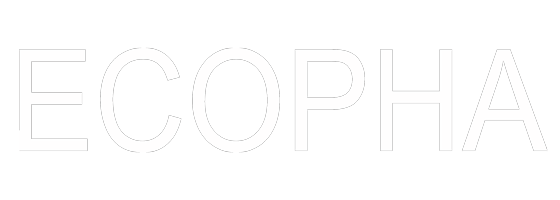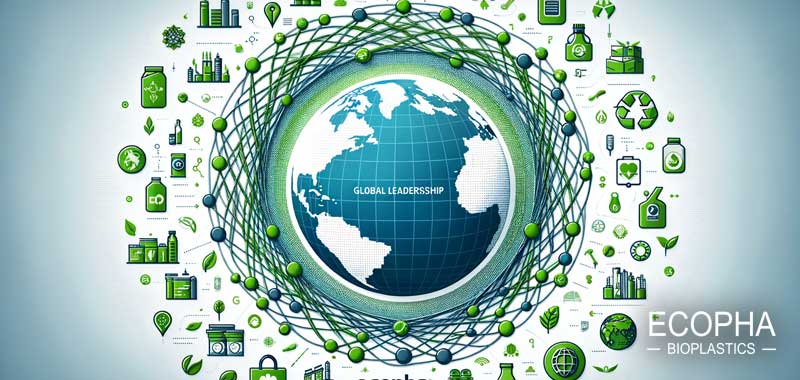Guided by Nature, Driven by Purpose
At Ecopha.shop, our mission and vision define every choice we make - from the materials we champion to the vendors we support. We are committed to reshaping the future of packaging, tableware, and foodservice by replacing synthetic products with natural-material alternatives made from bamboo, wood, paper, and plant fibers.
Our mission is to empower sustainable commerce by making renewable, compostable, and recyclable products accessible and scalable for businesses around the world. Through education, innovation, and ethical sourcing, we’re building a supply chain that aligns with environmental values without compromising on quality or usability.
Our vision is a future where disposables don’t mean pollution, where products return safely to the earth, and where businesses are celebrated for their role in protecting the planet. We aim to lead this transformation - not just through what we sell, but through the values we uphold.
Building a Greener Tomorrow: Ecopha’s Mission & Vision
In a world grappling with plastic waste and environmental decline, Ecopha.shop was founded on a simple but powerful belief: we can do better - with nature.
Our mission and vision aren’t just aspirational slogans. They are working principles, rooted in the belief that materials like bamboo, paper, and plant fibers offer scalable, practical, and beautiful solutions to today’s ecological challenges.
Our Mission
To build a more sustainable world by promoting and distributing natural-material products that reduce environmental harm, support ethical production, and enable businesses to make conscious choices.
At its core, our mission is about empowerment - giving manufacturers, retailers, and consumers access to products that are:
- Made from renewable plant-based resources
- Compostable, recyclable, or reusable
- Manufactured with low-impact processes
- Aligned with both functionality and ethics
We aim to offer an alternative to the convenience of plastic without its damaging legacy. Every tray, napkin, lid, or spoon sold through Ecopha.shop represents a small but meaningful step toward a healthier planet.
Our Vision
To lead a global transition away from single-use plastics by making natural materials the standard in packaging and disposables - not the exception.
We envision a world where:
- The default material for takeaway containers is sugarcane pulp or kraft paper
- Restaurants hand out bamboo cutlery instead of plastic
- Supermarkets use molded fiber trays instead of foam
- Events and institutions adopt compostable solutions as policy, not preference
And we see Ecopha.shop as the platform that helps make this future a reality - by connecting ethical vendors with sustainability-focused customers around the globe.
How Our Mission and Vision Show Up in Practice
Product Development
- All products listed on Ecopha.shop must meet strict sustainability criteria.
- We support materials that are not only natural and renewable but also meet real-world performance needs (durability, heat-resistance, etc.).
Supplier Engagement
- We partner only with vendors who share our commitment to eco-responsibility.
- Our marketplace tools are designed to empower small and mid-sized producers, helping them scale ethically.
Consumer Education
- Through content, labeling, and partnerships, we inform our customers about the materials they use and the best ways to dispose of them.
Advocacy & Industry Change
- We aim to influence how businesses approach sourcing and packaging - from local cafés to global supply chains.
Why Bamboo, Paper, Wood, and Plant Fibers?
Our focus on these materials is not just environmental - it’s strategic.
- Bamboo is fast-growing, strong, and requires no pesticides.
- Wood (when responsibly sourced) is durable and compostable.
- Paper is versatile, widely recyclable, and ideal for mass-market adoption.
- Plant fibers like sugarcane pulp, wheat straw, and cornstarch offer unique applications in molded packaging.
By championing abundant, renewable, and biodegradable materials, we help reduce landfill burden, lower emissions, and build a circular material economy that supports both nature and commerce.
Where We're Headed
Our long-term vision includes:
- Expanding the Ecopha.shop platform to serve more global regions
- Partnering with composting facilities and recyclers to close the material loop
- Launching our own eco-certification standard for natural-material vendors
- Creating a library of open educational resources for businesses making the sustainability transition
We don’t just want to sell better products - we want to help reshape systems and inspire industries.
Our Core Values
Our mission and vision are anchored by a strong set of principles:
- Integrity - Be honest about what’s sustainable and what’s not
- Practicality - Offer solutions that work in the real world
- Transparency - Disclose materials, sourcing, and environmental claims clearly
- Accessibility - Make natural alternatives available to businesses of all sizes
- Responsibility - Always consider end-of-life impacts in product design
FAQs
What is Ecopha.shop’s mission?
Our mission is to reduce environmental harm by replacing synthetic packaging and tableware with natural-material alternatives that are compostable, recyclable, or reusable.
How does Ecopha.shop fulfill this mission?
We curate, promote, and sell products made from bamboo, wood, paper, and plant fibers through our online marketplace. We also empower vendors and educate buyers to make eco-conscious choices.
What is Ecopha.shop’s vision for the future?
We envision a world where sustainable materials are the default for packaging and everyday disposables - and where businesses operate with environmental responsibility as a core value.
Why does Ecopha.shop focus on natural materials instead of synthetic alternatives?
Natural materials decompose safely, are renewable, and have a smaller carbon footprint. They are also more likely to be accepted in composting and recycling systems.
How does Ecopha.shop support a circular economy?
By promoting products that are designed for reuse, composting, or recycling, and by encouraging responsible end-of-life handling, we contribute to material cycles that minimize waste and maximize value.





